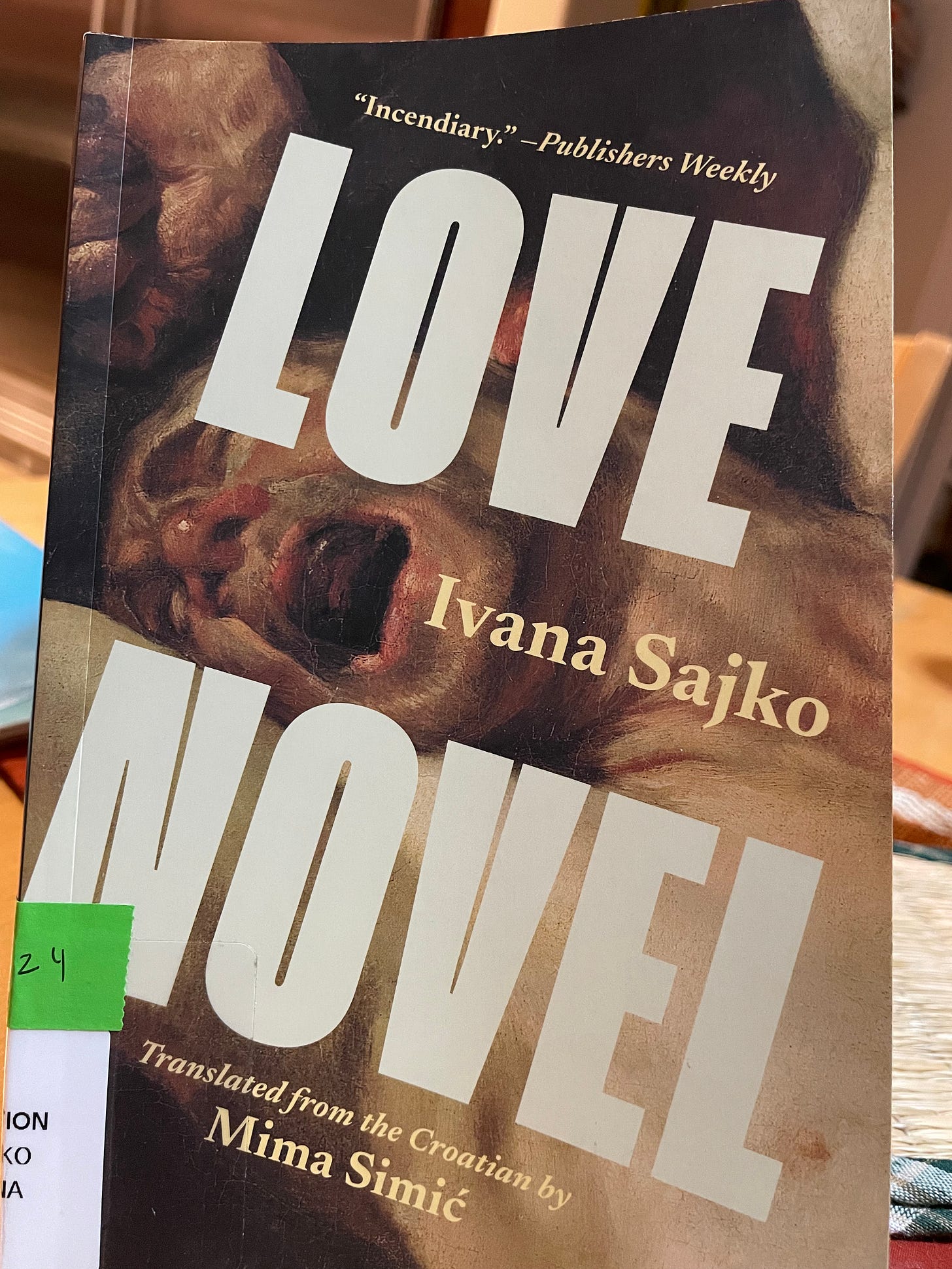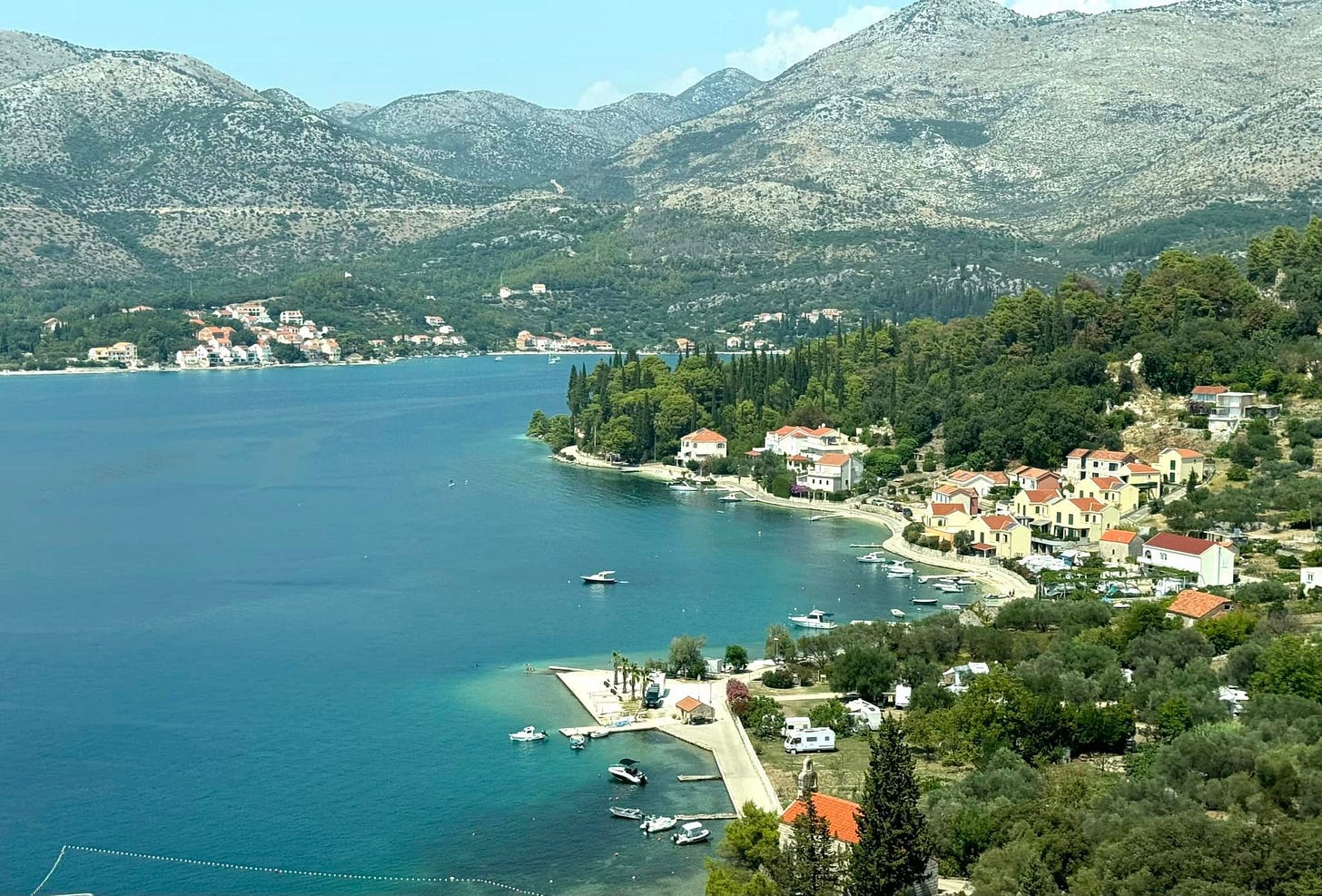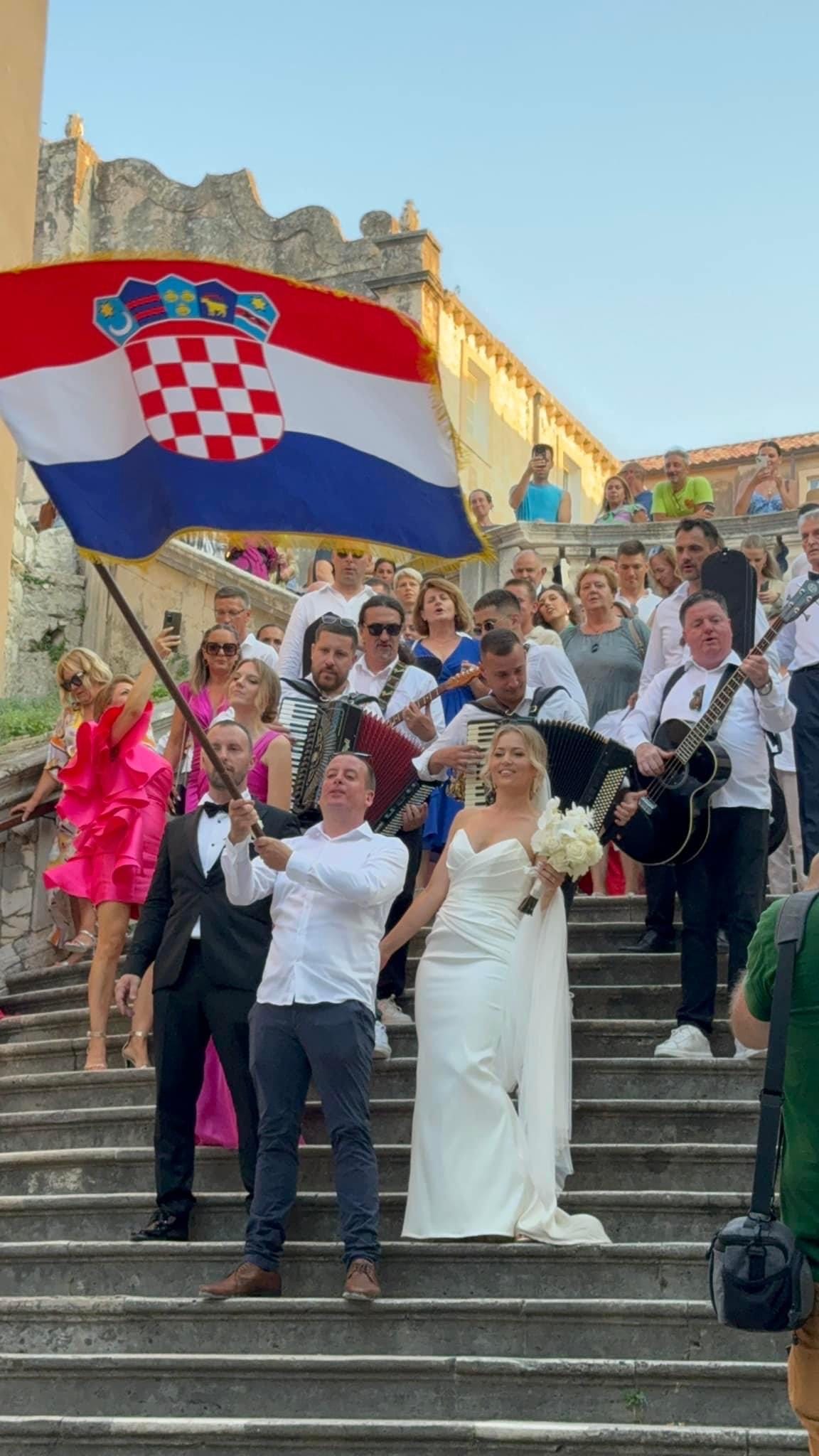WORDS, WORDS, WORDS FROM CROATIA
This extended, incendiary rant about a marriage in trouble must be read for it's probably the closest we'd ever get to reliving some of the fire and angst inside our own partnerships.

WORDS, WORDS, WORDS, he screamed at the top of his lungs; the first thing that came to his mind when he finally managed to cut through her breathless sentences—he didn't even try to understand what she was actually saying;
The first page of Love Novel begins with so much hate that something is askew. Who are these two young things who hate each other so much even though they’ve just made a baby together? With this phantasmagoric revelation of what promised to be a brewing marital row, mid-week, I stepped in gingerly into what, I realized much later, was the quicksand of a failing partnership. The unnamed couple in the story fights for the survival of their love in conditions of severe economic insecurity during uncertain political times, and we watch how his lack of communication and her endless carping and ranting erode their love and commitment. Love Novel’s opening page spews so much lava and heat that I soon had to beat a hasty retreat into the benign world of Netflix where I could surf to select the sort of emotion I wished to see before I fell asleep.
Author Ivana Sajko is a dramaturge, playwright, novelist, theatrical director in Zagreb. Her background is seen on every page of Love Novel, packed as the work is with fury, emotional lurches and sudden expressions of love. The novel bubbles over with moments of breathtaking prose and heartbreaking pathos, and I guess that most readers will relate to almost every emotion splattered across each page of this terrific work. Marriage is hard, yes, but marriage without money is harder still. If anyone says that love can see us through the inordinately ugly moments of our lives, it’s possible they’ve never gone to bed unhappy, hungry, hopeless and worried about how the next day’s bread would reach their kitchen.
And anyway, zero resists multiplication, as well as imagination and any kind of meditation. And so he doesn’t even bother; he stares at the crack in the wall, at the ruins behind that wall that sprang from a similar crack, at the rot spreading over those remains, at the long recovery process that he fails to envisage, and he smokes. He’s sitting propped on his elbows over an ashtray full of cigarette butts, blowing out smoke rings and calmly observing the crack swelling in the floorboards; and he still wouldn’t move if the ceiling were to collapse on his head.
A friend of mine was in Croatia this week and these photos are from her album. I found it hard to connect this week’s pick with the dramatic scenes from Croatia but what it certainly goes to prove is that the most placid scenes hide an enormous amount of turmoil underneath. Our home lives simply mimic what we see out in nature. What friends and, often, family see are our faces after we’ve made every effort to apply those metaphoric concealers to our visage and to our comportment.
The plot of Love Novel is simple. A couple has rushed into a marriage and a child is now crowding it, asking to be fed, cleaned and entertained. The father in question is an idealist, a Dante scholar, and the woman is an unsuccessful actress who takes unpleasant jobs simply to help run the house. Although the man is out of a job, he finds himself in steady decline into alcoholic stupor as every opportunity to put food on the table seems to result in a squandering of all the ideals he holds dear. The wife cannot fathom his abysmal lack of clarity over what must be his priorities. The problem is he does not know which battles he must pick, she yells, most reasonably, while she herself continues to pick every possible battle that she can inside the marriage.
You’d never noticed it before. You couldn’t have, she’d tell you, you shouldn’t have, because you don’t have the luxury of lounging on barricades, protesting against the devastation of cultural heritage and public space as if it were your battle that you can actually afford. Don’t act dumb, she’d add—you know very well there’s a fundamental and crude priority difference between the struggle for bread and the struggle for transparent urban planning, and that the latter can compromise the former, which you could and should have learned from the example of your one and only unpublished article demanding wages and justice;
The young father does not want to see that light, that it’s perfectly fine to hold on to your ideals when you’re young and single and have minimal needs. However, when a wife and a baby skew your life, ideals must come second to the skill that will guaranteed daily food, necessities and, most of all, utilities. By the time, Love Novel closes, the landlord has shut off the electricity feeding their apartment.

While the novel has clearly received innumerable accolades from around the world, I felt it suffered from a lack of clarity in the way it tells the story. It’s one big rant with many rants suppurating inside it. While reading this work, I had to go back to the beginning of a paragraph to follow the thread of what was being said in order to trace the thought in someone’s head. Going through that “rework” naturally threw me out of the work time and again. This does not often offer the best reading experience. I had to reread passages to understand if something were true or whether it had even happened at all. Given how this novel translated by Mima Simić is brilliant both in its sharp focus on a relationship and its psychological insights into the institution of love and marriage, I felt it suffered from some stylistic choices in narration.





The last photo and its message is awesome...and review too.
Kalpana, your review makes me want to read this novel, and the photos are great as well.